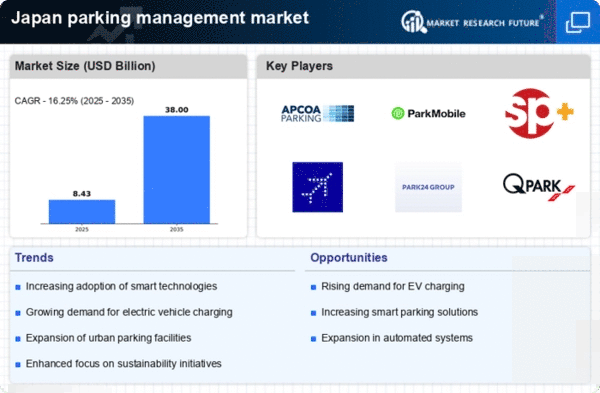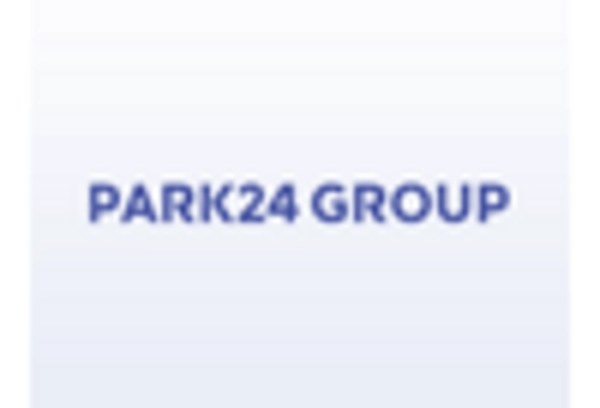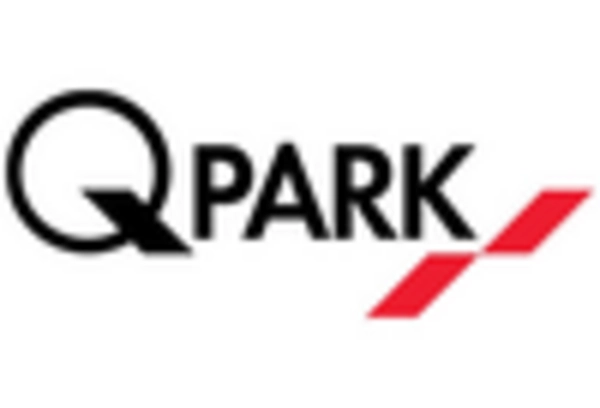Government Initiatives and Regulations
The Japanese government has implemented various initiatives aimed at improving urban mobility and reducing traffic congestion. These initiatives often include regulations that promote the development of smart parking solutions and the integration of technology in the parking management market. For instance, The government has set targets for reducing carbon emissions. This indirectly encourages the adoption of efficient parking systems. By 2025, it is projected that investments in smart parking technologies could reach upwards of $1 billion, reflecting the government's commitment to enhancing urban infrastructure. Such regulatory frameworks create a conducive environment for growth in the parking management market.
Urbanization and Increased Vehicle Ownership
The rapid urbanization in Japan has led to a significant increase in vehicle ownership. This increase drives the demand for efficient parking solutions. As cities expand, the need for organized parking management becomes critical to accommodate the growing number of vehicles. In 2025, it is estimated that urban areas in Japan will see a vehicle ownership rate of approximately 600 vehicles per 1,000 inhabitants. This surge necessitates advanced parking management systems to optimize space utilization and reduce congestion. The parking management market is thus positioned to benefit from this trend. Municipalities and private operators seek innovative solutions to manage the increasing demand for parking spaces.
Technological Advancements in Parking Solutions
Technological advancements play a pivotal role in shaping the parking management market in Japan. Innovations such as automated parking systems, mobile payment solutions, and real-time parking availability apps are transforming how parking is managed. The integration of Internet of Things (IoT) devices allows for better monitoring and management of parking spaces. This leads to increased efficiency. By 2025, the market for smart parking solutions is expected to grow by approximately 25%, driven by consumer demand for convenience and efficiency. This technological evolution not only enhances user experience but also optimizes space utilization, making it a key driver in the parking management market.
Rising Demand for Electric Vehicle Charging Stations
As the adoption of electric vehicles (EVs) continues to rise in Japan, there is a corresponding demand for EV charging infrastructure. This trend is influencing the parking management market, as operators are increasingly required to integrate charging stations into their facilities. By 2025, it is anticipated that the number of EVs on the road will exceed 2 million, necessitating the installation of thousands of charging points. This shift not only presents an opportunity for parking management companies to diversify their services but also aligns with the broader goals of sustainability and reduced emissions. The integration of EV charging solutions is thus a significant driver for the parking management market.
Consumer Preferences for Convenience and Accessibility
Consumer preferences are evolving, with a growing emphasis on convenience and accessibility in parking solutions. In Japan, users increasingly favor parking facilities that offer seamless experiences, such as mobile app integrations for reservations and payments. This shift in consumer behavior is prompting parking management companies to innovate and enhance their service offerings. By 2025, it is expected that over 40% of parking transactions will be conducted via mobile applications, reflecting a significant change in how consumers interact with parking services. This demand for convenience is a crucial driver for the parking management market, as companies strive to meet the expectations of modern users.
















